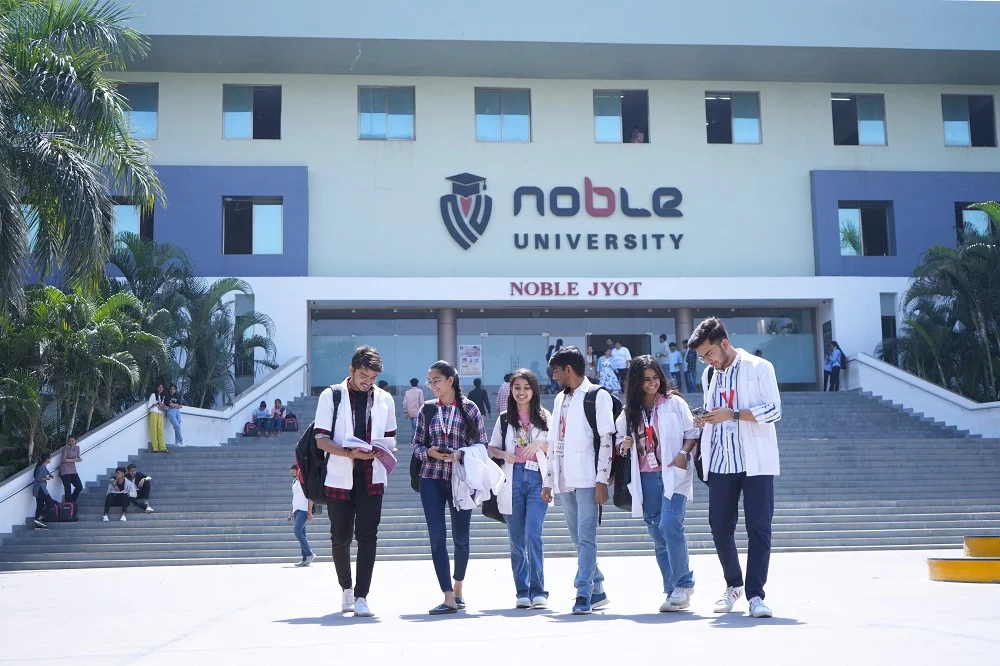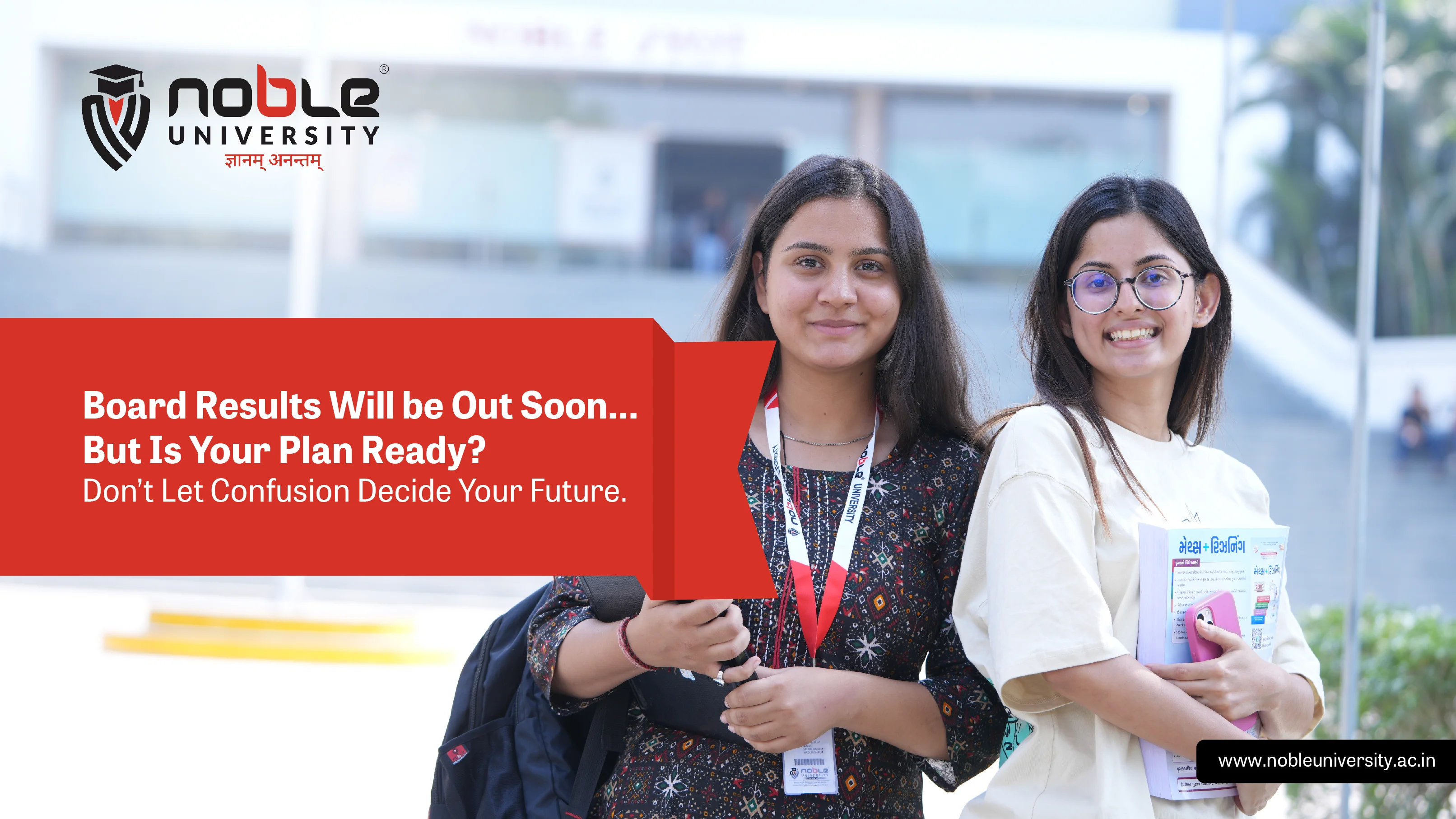
Parents’ Dilemma: Choosing Between State Universities and Private Institutions in Gujarat

The Modern Aspirations of Students and Parents in Gujarat?
In today’s Gujarat, the journey from school to university has become more than just a path to a degree; it’s a path to opportunity. Students in cities like Junagadh are no longer thinking only about stable jobs; they are thinking about global careers, digital skills, and entrepreneurship.
Parents, however, often find themselves caught between supporting these ambitions and ensuring financial security. This tension gives rise to the dilemma: should they choose the long-standing credibility of state universities or the modern, future-ready environment of private institutions? Let us help you resolve this dilemma by providing a quick comparison of both options.
State vs Private Universities in Gujarat
Here’s a side-by-side view of what state and private universities generally offer:
Aspect | State Universities | Private Universities |
Affordability | Lower tuition fees due to government support. | Higher fees, but scholarships and financial aid options are often available. |
Infrastructure | Basic facilities, sometimes outdated. | Smart classrooms, labs, and modern campuses with global collaborations. |
Placement Support | Limited placement cells; students rely heavily on personal effort. | Dedicated placement cells with strong industry tie-ups and internship opportunities. |
Curriculum | Standardized, less flexible, and often traditional. | Dynamic, industry-oriented, and includes global exposure programs. |
Faculty Development | Varies, often constrained by resources and training gaps. | Faculty trained with modern teaching tools, AI integration, and global best practices. |
Student Life | Focus on academics; extracurriculars vary. | Vibrant campus life with clubs, mentorship, and international exposure. |
This table shows that while state universities have affordability and legacy on their side, private universities in Gujarat are focusing on preparing students for a competitive global future.
Key Aspects to be Considered When Choosing a University
Choosing a university is not about right or wrong; it’s about finding the best fit for your child’s future. Here are the key factors that parents often consider when making a decision.
1. Affordability and Scholarships
State universities are generally less expensive, making them attractive to many families. However, private universities balance higher fees with financial aid, scholarships, and added value in terms of infrastructure and career support. For many parents, it’s no longer just about the cost but about what their child gets in return.
2. Infrastructure and Learning Environment
Parents want their children to study in environments that inspire learning. While state universities may adhere to traditional classroom settings, private institutions offer modern infrastructure, digital labs, AI-powered learning platforms, and even incubation spaces for startups. This difference directly impacts how prepared students feel for their future.

3. Placement Opportunities and Career Support
Employability is at the center of the debate. State universities offer strong academic foundations, but structured placement drives are limited. Private universities, on the other hand, maintain career development centers, internship programs, and corporate partnerships that provide students with more career options after their graduation and a clear path to the job market.
4. Curriculum and Global Exposure
Flexibility in academics is another key factor. State universities typically follow rigid curricula, whereas private universities often introduce interdisciplinary learning, global case studies, and exchange programs. Parents who want their children to think globally often find private universities a better match.
The Role of Faculty in Shaping Student Futures
Faculty are at the heart of any learning experience. In state universities, teachers are highly knowledgeable but often limited by large class sizes and traditional teaching methods.
Private universities in Gujarat, however, are investing in faculty development programs, encouraging professors to adopt AI tools, digital teaching aids, and global pedagogies. This shift ensures that students are not just taught but mentored to meet the challenges of a rapidly changing world.
Beyond Classrooms: Student Life and Opportunities
Education is not confined to classrooms anymore. Parents also look for how a university shapes their child’s personality outside academics. While state universities may focus primarily on academics, private universities often provide vibrant student clubs, cultural festivals, sports, and leadership opportunities.
These experiences are crucial for building confidence, teamwork, and problem-solving skills, traits that employers value just as much as academic knowledge.

Why the Right Choice Matters More Than Ever
In today’s fast-paced world, the university you choose doesn’t just shape what students learn—it defines how they think, adapt, and thrive in a changing future. The real key lies in finding an institution that strikes the right balance: one that is affordable yet modern, credible yet future-ready.
For parents in Junagadh and across Gujarat, the decision goes beyond fees—it’s about investing in the right mix of quality education, global exposure, and long-term career opportunities. That’s where Noble University stands out with its affordable fees, easy admission process, and a futuristic learning environment.
Choose Noble University for a Future-Ready Education
At Noble University, we bring together the best of both worlds: affordability with excellence, tradition with innovation, and local accessibility with global readiness. As one of the best private universities in Gujarat, Noble offers advanced infrastructure, dedicated placement support, and faculty equipped with the latest teaching methods.
Parents can be confident that their children are not only earning a degree but are being prepared for a successful, future-oriented career. Discover more about our vision and programs at Noble University. Explore admission opportunities through our Admissions Page and learn how we are redefining the role of educators in the AI era.
FAQS
Both state and private universities have their strengths, and the better choice depends on a student’s priorities. State universities are more affordable, while private universities often provide modern infrastructure, global exposure, and structured placement support.
The most common disadvantage is higher tuition fees compared to state universities. Additionally, the quality can vary depending on the institution, so parents must carefully research before choosing.
The list may vary depending on the ranking source, but Gujarat is home to several reputed private universities that focus on innovation, placements, and global exposure. Noble University is recognized among the leading institutions in Junagadh for its modern approach to education.
State universities are government-funded and emphasize affordability and accessibility. Private universities, on the other hand, are independently managed and often provide advanced facilities, industry-linked programs, and global learning opportunities.
It depends on what the student and their family value more, cost-effectiveness or future-readiness. While state universities are budget-friendly, private universities are often better equipped for today’s competitive global job market.
Yes, private universities generally charge higher tuition fees. However, they often provide scholarships, financial aid, and additional facilities that justify the cost.
Yes, degrees from UGC-approved private universities in Gujarat are recognized across India and abroad. Accreditation ensures that the qualifications hold value for both higher education and employment.
Government universities are usually more affordable and have a long-established academic reputation. They also attract diverse student populations, offering a wide community learning experience.


